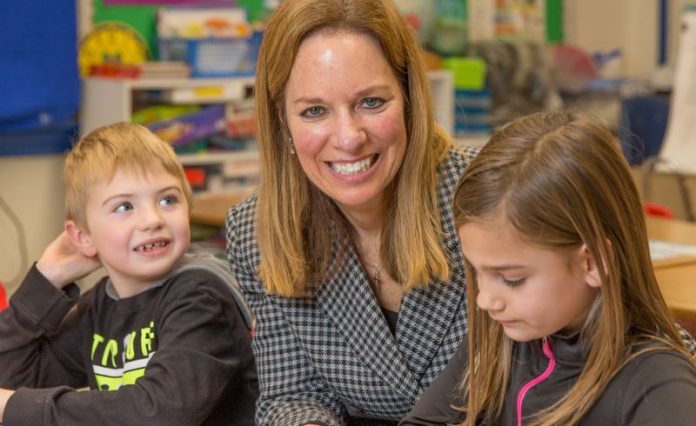
Investing in quality over quantity, and deepening relationships
COLLEEN R. VERMEULEN
As DREs and faith-formation leaders, we can sometimes feel inundated with communication requests: voicemails, emails, phone messages. From questions on your parish’s Facebook page about VBS to notes left on your desk about missing supplies, everyone, it seems, wants to hear from us. It’s easy to slip into a reactive mode and think of communication as simply responding to those who ask. When we do this, however, we miss out on a vital opportunity to form those closest to us — our volunteer catechists — through proactive communications that are highly meaningful and significant in the lives of these essential volunteers. How can we aim for these deeper connections and make the most out of communication with our catechists?
Get to know them personally
If everything I know about a volunteer is related to their service in parish faith-formation
programs, then it’s time for me to start building a broader relationship with this person. Communicating with a volunteer about their personal life and interests outside of catechesis demonstrates that I value them as more than just a person who fills a volunteer role each year.
Phone conversations, taking them out for coffee, or offering to stop and chat during a child’s soccer practice are all great ways to do this. Some leaders set a goal to do this with a different volunteer each week, while others set aside certain times of the year for getting out of the office to develop personal relationships with volunteers. Apart from the love we show by communicating personally, building relationships increases trust and sets conditions for two-way communication when volunteers encounter challenges in their ministry.
Go beyond the “what” and “how”
Our leadership role often means we know how to “make stuff happen” and “get stuff done.” We tend to be comfortable communicating “what” and “how” directions to our volunteers — through emails, in-person meetings, classroom guidelines, etc. Yet do we speak as often and as freely about the parish vision for catechesis? About the “why”? Or about the impact and vital role of faith formation in the parish as a whole?
Having a clear and positive experience of the “why” inspires catechists to continue serving and extends ownership and initiative to them. When the pastor receives an email from a parent enthusiastically thanking him for their child’s First Communion preparation, share it with all of your catechists (after removing personal information). When something “new” is coming to the parish, with permission of your pastor, share the news with volunteers first, before it’s announced in the bulletin or at Mass. These types of communication demonstrate that volunteers are trusted, not merely “cogs” in a machine — “below” the parish staff, but truly coworkers in a mission that’s ultimately God’s.
Cultivate a desire to listen and accompany
Sometimes communication with volunteers involves challenging topics. Maybe it is a catechist’s decision to stop serving, a person’s struggle with a particular Church teaching, a volunteer’s disagreement with the parish’s direction, receiving feedback on a potential change in parish programs, an apology for a negative experience, or giving constructive criticism to a struggling catechist. Even in these communications, we can draw near to Jesus, asking to share his heart with our volunteers.
During his earthly life, Jesus’ communications were sometimes met with rejection or disagreement, yet he continued to accompany, waiting patiently for a moment of shared understanding. We, too, can approach communication with a genuine desire to accompany rather than “win over” catechetical volunteers. This can mean offering them opportunities for leadership development into new roles or other ministries, listening again and again as someone processes a significant change, or simply being open to feedback that’s “hard” to
hear.
Communication with volunteer catechists and faith-formation leaders is a call to quality over quantity, an opportunity to communicate at a deeper level with those we rely on. Quality communication builds stronger relationships — an investment of time that forms, refreshes, and sustains fruitful catechesis in our parishes.
EDITOR’S NOTE: This is the second of a three-part series on improving communications in our catechetical settings. Find part 1 and 3 at the links below:
Leading DRE: Improving Communications with Parents
Leading DRE: Communicating with Parish Leaders
Colleen R. Vermeulen, Mdiv, MNA, is an instructor and director of mission with the Catholic Biblical School of Michigan. She provides ministry and leadership training and consultation for dioceses and parishes. Visit PracticalEvangelization.wordpress.com.
This article was originally published in Catechist magazine, November/December 2019
PHOTO: GEORGE MARTELL/BAYARD




